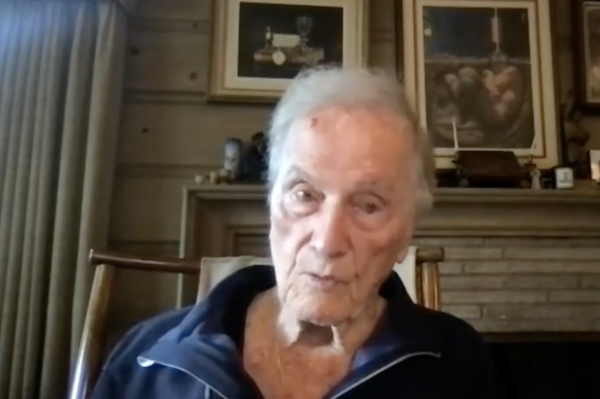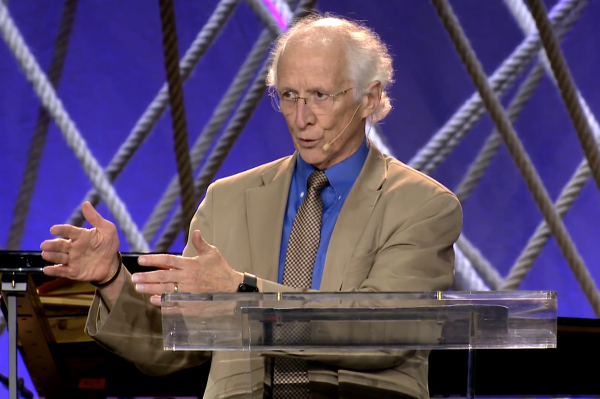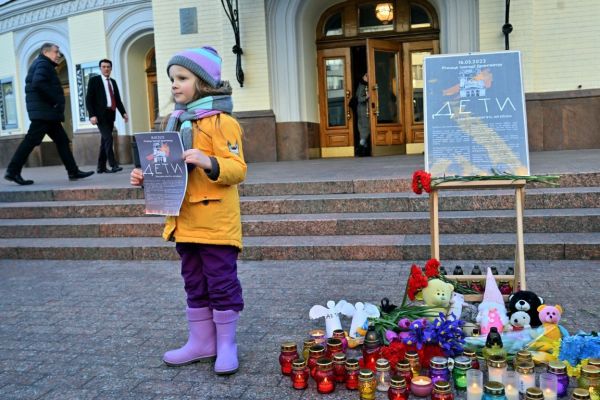SCOTUS Has Put an 'Air Hammer' to America's Foundations

Many still remember the stunned expression on the face of President George W. Bush on September 11, 2001, as his chat with schoolchildren was interrupted suddenly by an aide telling him of the assault on the New York World Trade Center.
Bush was mocked by some, but the event was so catastrophic that it took him a moment to assimilate the full implications.
So there is a stunned silence in the immediate aftermath of the Supreme Court of the United States' assault on the Constitution inherent in its ruling on same-sex marriage — even though most knew it was coming.
Nevertheless, let us now pause and consider the enormity of the decision.
1. A large portion of the America faith community — Christian, Orthodox Jewish, Muslim, and others — has now been potentially criminalized.
I have written in previous pieces that, with respect to biblically (rather than culturally) based churches, the left-progressive agenda has aimed at marginalization, caricaturization, vilification, criminalization, elimination.
"By imposing its own views on the entire country, the majority facilitates the marginalization of the many Americans who have traditional ideas," wrote Justice Samuel Alito.
Any religious institution — Christian or otherwise — and its clergy refusing to perform weddings for couples simply because they are homosexual presumably could be prosecuted for denial of constitutional rights.
2. The federal government, through SCOTUS, has now dictated to religious bodies how they must interpret and apply — or even set aside — some of their sacred doctrines.
The five Justices constituting the SCOTUS majority have issued a secular encyclical, daring to place themselves in the position of "high priest," imposing their mandates on doctrines regarding gender and marriage held sacred by millions.
"In our society, marriage is not simply a governmental institution; it is a religious institution as well," said Justice Clarence Thomas. "Today's decision might change the former, but it cannot change the latter. It appears almost inevitable that the two will come into conflict, particularly as individuals and churches are confronted with demands to participate in and endorse civil marriages between same-sex couples," wrote Justice Thomas.
3. SCOTUS' ruling on the Obamacare mandate and marriage reveals that its majority has embraced subjectivist "living Constitution" theory and rejected objective original intent interpretation.
Justice Thomas declared that the majority opinion is "at odds not only with the Constitution, but with the principles upon which our nation was built."
Justice Scalia was referring to the subjectivist interpretation when, with respect to the Court's most recent ruling on Obamacare mandates, he said that the majority, including Chief Justice John Roberts, had engaged in "interpretive jiggery-pokery" and "somersaults of statutory interpretation" in which "words have no meaning."
Roberts dissented on same-sex marriage, and also noted the subjective element when he and the other dissenters termed the majority's decision "an act of the will, not legal judgment."
Justice Samuel Alito, also part of the dissenting minority, had subjectivism in mind when he said that "the Justices in the majority claim the authority to confer constitutional protection upon (the right of same-sex marriage) simply because they believe it is fundamental."
If subjectivism becomes a basis for making law, then anything becomes possible. "At present, no one —including social scientists, philosophers, and historians — can predict with any certainty what the long-term ramifications of widespread acceptance of same-sex marriage will be," said Justice Alito, adding that "judges are certainly not equipped to make such an assessment."
The majority found in the Fourteenth Amendment a "'fundamental right' overlooked by every person alive at the time of ratification, and almost everyone else in the time sense," wrote Justice Scalia.
The majority decision, said Justice Thomas, "rejects the idea — captured in our Declaration of Independence — that human dignity is innate and suggests that it comes from the Government. This distortion of our Constitution not only ignores the text, it inverts the relationship between the individual and the state."
Further, he wrote, liberty has "long been understood as individual freedom from government action, not as a right to a particular government entitlement."
4. SCOTUS has indirectly ratified the decisions of lower courts nullifying legitimate votes of the people.
To those who take seriously the idea of a government "of the people, by the people, for the people" earlier decisions by lower courts that nullified voters' favoring of marriage to be defined as being between a man and woman constituted a shocker.
SCOTUS' sweeping decision June 26 indirectly ratifies the power of lower courts to cancel electoral outcomes not in alignment with their opinions. The implications are deeply troubling, which is why Justice Scalia described the SCOTUS majority's decision as a "judicial Putsch" and outright "threat to American democracy."
Justice Clarence Thomas wrote that the majority decision "will likely cause collateral damage to other aspects of our constitutional order that protect liberty." Justice Thomas also expressed concern that the SCOTUS ruling enshrines within the Constitution a marriage definition that places it "beyond the reach of the normal democratic process for the entire nation."
Justice Scalia wrote that "Until the courts put a stop to it, public debate over same-sex marriage displayed American democracy at its best. But the Court ends this debate, in an opinion lacking even the veneer of law."
5. SCOTUS, in the marriage decision, has disempowered the states.
The arrow of the SCOTUS ruling is aimed at the heart of the power of the 14 states banning same-sex marriage.
Several states have passed laws in an attempt to protect clergy and business owners whose religious convictions prevent them from performing same-sex marriages or providing their services to same-sex couples. Clearly, these protections are seriously threatened by the SCOTUS decision. "States are free to adopt whatever laws they like, even those that offend the esteemed Justices' 'reasoned judgment,'" said Justice Scalia.
Long ago, a Scottish writer wrote of the dissolution of his society. "Bit by bit, you will chip away at what makes Scotland Scotland until nothing is left," he said. The SCOTUS decision on marriage has put an air hammer to America's foundations






















